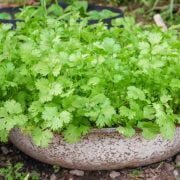Most dogs have a healthy appetite, but some pets eat anything that looks appetizing. As such consumption causes severe health concerns, you must remain cautious about their eating habits. Keep their feeding trays and shelters separate if you have other pets or domestic birds.
Animal meals are specific for a reason. Since their digestive systems cannot metabolize complex foods, it is best to feed them separately and ensure your hound does not eat bird seeds accidentally.
Instead of wondering how to catch a bird in your house or cage them for prolonged periods, create an outdoor shelter with a feeder inaccessible to other pets. Read more to find out about the dangers of dogs consuming birdseed.
Birdseed – Yay or Nay?

Birdseed is dense and hard, unlike lean meat and proteins that dog intestines can easily process. Some bird feeds contain excess levels of salt and toxic ingredients like caffeine, chocolate, mixtures with grapes, raisins, and components of nuts, which, when consumed in large quantities, can cause gastrointestinal issues.
Depending on the seed conditions, its constituents, and the amount consumed, you can determine the degree of damage these seeds can cause. Seeds consumed in small quantities cause no harm, but many can upset the gut and lead to blockage. To prevent this, you can use a combination of different prepackaged bird seeds like sunflower or safflower and homemade mixes with dried fruit bits.

Birdseed is a healthy source of fats and proteins, but some seeds can be toxic, and the contaminants can make your dog sick. So you must try to avoid using these as treats regularly. To avoid using birdseed with pesticides and pollutants, prepare a safe, nutritious seed mix and take the veterinarian’s advice to determine appropriate quantities.
Raw, unprocessed, or spoiled birdseed can turn moldy since fungi of the Aspergillus genus grow easily on grains, peanuts, and corn, leading to liver damage and other health hazards. Sometimes, some seeds may not be toxic, but consuming a large quantity could cause allergies, salivation, stomach troubles, and vomiting, which may sometimes need surgical treatment.
To prevent such health concerns, keep your pet away from chocolate, grapes and raisins, nuts, caffeine, alcohol, sugar substitutes, cooked bones, avocados, raw yeast, uncooked dough, onions, garlic, and chives. Although your four-legged companions can easily ingest natural produce, leaves of fruits, vegetable stems, core or pits of peaches, plums, pears, and nectarines also contain trace amounts of toxins.
Common Problems with Birdseed Consumption

Other issues caused by birdseed consumption include:
- Severe diseases are transmitted through droppings from the bird feeder.
- Bacteria from dirty bird bath platforms or those recently cleaned with vinegar and bleach solution.
- Bird feces cause Salmonella or symptoms like high fever and gastrointestinal issues.
- Contaminated bird mixes cause discomfort and diarrhea.
- Aflatoxin poisoning leads to vomiting, diarrhea, sluggish behavior, loss of appetite, and jaundice.
- Salmonella toxicity causes lethal conditions, possibly even death.
- Birdseed byproducts containing high-fat content cause choking and lead to food intolerance issues.
Preventions and Precautions from Birdseed
To avoid any of the conditions mentioned above, it is imperative to keep your dogs away from birdseed. So, it’s best not to hang the feeder at lower heights or opt for a pet-friendly seed basin. Another precautionary measure is to stop spreading seeds on the ground and use a flower bed or tall platform where dogs cannot reach easily.
Since bird droppings also contain protozoan parasites and bacteria that harm canines, it is mandatory to keep the feeding tray clean at all times. Also, stock the feeder with clean, moist, moldy, or contaminated seeds.
If these precautions do not prove to be effective, apply any of the below-listed measures:
- Locate sites: where the dog wanders off and may come in contact with seeds carried off by the wind or dropped by birds. Hence, try to restrict access to other pets to avoid accidental ingestion.
- Relocate feeder: If you do not have enough space to keep dogs and birds in separate areas, try moving the feeding basin and remove husks, shells, and other components that cannot be eaten unintentionally.
- Smear spices: The soil around the seeding area can be mixed with pungent spices that irritate a dog’s nose. You can also use electric repellents that detect pet motions and create spooky sounds to keep them at bay.
- Reward with treats: Use positive reinforcement to train and reward your pet when it pulls away from feeding on seeds.
Final Thoughts
Homemade birdfeed and seed mixtures are generally harmless but, if contaminated, can cause diseases when ingested by canine pets. At times, even fresh birdseed, when consumed in large quantities, can upset the stomach and lead to serious illnesses.
To prevent dogs from consuming birdseed, feed your pet at regular intervals according to their usual pattern so that they do not accidentally snack on seeds and other components on their walks. While these tiny seeds may look harmless, they can be quite dangerous and cause serious conditions like gastrointestinal issues, kidney failure, and other complex issues that may lead to death in extreme cases.
Frequently Asked Questions
How Can You Prevent Dogs from Eating Birdseed?
Train your pet to avoid harmful substances, maintain regular hygiene, and take adequate precautionary measures to hang bird feeders at a height that can prevent dogs from accidentally feeding on seeds.
Are All Birdseeds Harmful?
While some seeds are nutritious, their consumption may lead to lethal conditions since dogs cannot metabolize them easily, thus causing infections, stomach troubles, aflatoxin poisoning, organ damage, and toxicity.














Comments